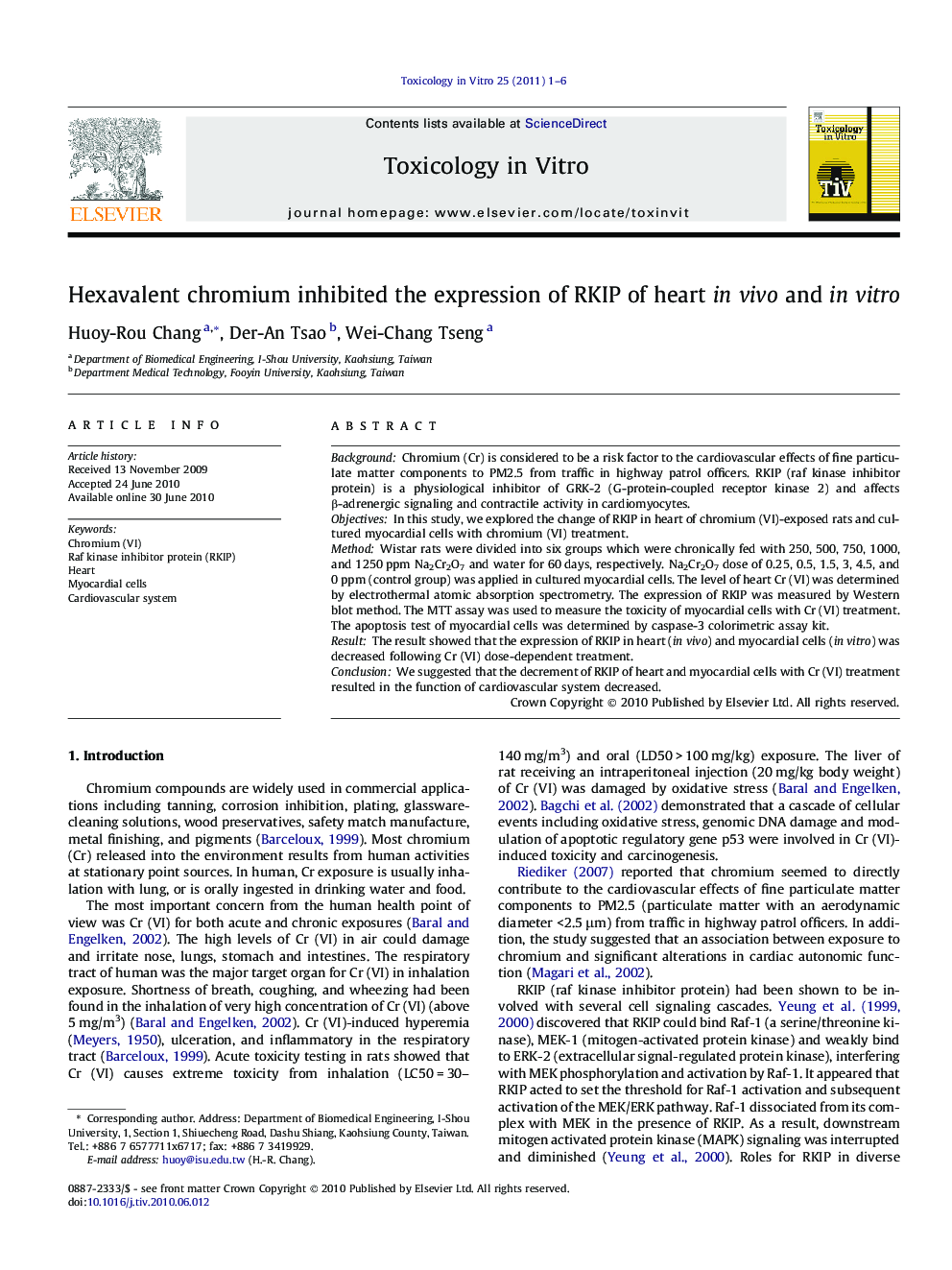| Article ID | Journal | Published Year | Pages | File Type |
|---|---|---|---|---|
| 2602866 | Toxicology in Vitro | 2011 | 6 Pages |
BackgroundChromium (Cr) is considered to be a risk factor to the cardiovascular effects of fine particulate matter components to PM2.5 from traffic in highway patrol officers. RKIP (raf kinase inhibitor protein) is a physiological inhibitor of GRK-2 (G-protein-coupled receptor kinase 2) and affects β-adrenergic signaling and contractile activity in cardiomyocytes.ObjectivesIn this study, we explored the change of RKIP in heart of chromium (VI)-exposed rats and cultured myocardial cells with chromium (VI) treatment.MethodWistar rats were divided into six groups which were chronically fed with 250, 500, 750, 1000, and 1250 ppm Na2Cr2O7 and water for 60 days, respectively. Na2Cr2O7 dose of 0.25, 0.5, 1.5, 3, 4.5, and 0 ppm (control group) was applied in cultured myocardial cells. The level of heart Cr (VI) was determined by electrothermal atomic absorption spectrometry. The expression of RKIP was measured by Western blot method. The MTT assay was used to measure the toxicity of myocardial cells with Cr (VI) treatment. The apoptosis test of myocardial cells was determined by caspase-3 colorimetric assay kit.ResultThe result showed that the expression of RKIP in heart (in vivo) and myocardial cells (in vitro) was decreased following Cr (VI) dose-dependent treatment.ConclusionWe suggested that the decrement of RKIP of heart and myocardial cells with Cr (VI) treatment resulted in the function of cardiovascular system decreased.
